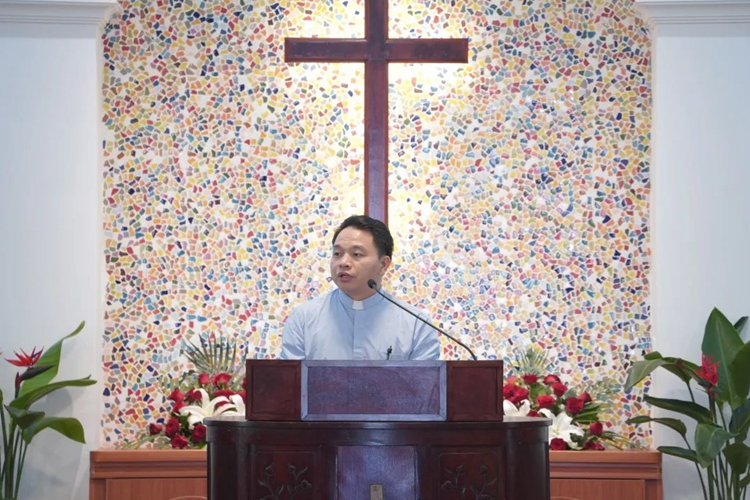When queried about the biggest challenge faced by the Church in China, Dr. Gene Wood, the founder of Word4Asia Asia Connect Consulting International in the United States, responded in a previous interview with China Christian Daily that rural grassroots church pastors primarily suffer from a lack of sufficient training and study.
The provision of Bible study materials to pastors in remote areas is a top priority for one of Dr. Wood’s clients. He emphasized the value of equipping pastors with resources such as a Bible atlas, enabling them to distinguish between Nazareth and Nineveh.
Pastors must prioritize learning
Wood’s assertion holds true. A significant number of grassroots pastors in China possess limited knowledge about geographical locations mentioned in the Bible. During a training course organized by an urban church in North China, a guest speaker, referred to as T (a pseudonym), elucidated the scriptures found in Galatians. Following the reading of verses, he encouraged students to consult the map provided in the appendix of the Bible to trace Paul's missionary journey.
T, in addition to interpreting the Bible, T also shared his own preaching experience as an example, guiding the students on how to prepare a sermon. As part of their homework, T asked the trainees to outline the scriptures, title, introduction, thesis (content), examples, and conclusions within his sermon.
Furthermore, T motivated the participants to develop a one-year preaching plan and disseminate the word of God comprehensively. He stressed the importance of teaching the complete Gospel, cautioning against a narrow focus that may lead believers towards extremes, such as extreme charisma, which has adversely impacted certain churches.
Church leaders who neglect education hinder church growth
Z, a pastor belonging to the post-90s generation, received theological training at an institute and furthered his studies at a seminary abroad. However, in the church where he serves, the leader is solely responsible for all decision-making and church affairs, giving pastors little autonomy. "It is best not to take any action or offer suggestions without proper authorization."
It is never too late to learn, regardless of age or experience. Learning is a continuous process, and it is especially important for church leaders to continuously improve their knowledge and skills in order to effectively lead and shepherd the congregation.
Church leaders, particularly those from grassroots churches, often possess a deep spiritual connection with God and have endured hardships for their faith. While they may be familiar with the Bible, they may lack comprehensive study and management experience. This can sometimes hinder their ability to run the church efficiently.
However, it is crucial for these leaders to recognize the importance of learning and not limit themselves based on age or preconceived notions. It is not enough to rely solely on existing experience and habits; they must be open to new methods, ideas, and technologies in order to lead the church effectively in the modern world.
For example, pastors can learn computer skills to write sermons, create presentations, and initiate online ministries. They can also explore new methods of Bible study and group models, search for discipleship materials that align with the needs of their congregation, and establish appropriate rules and regulations to structure the organization effectively.
Learning pastor brings revival to church
The experience of a church county in central China during the pandemic exemplifies the positive influence of the pastor's commitment to learning on the church.
Due to the suspension of in-person gatherings amid the epidemic, Pastor H implemented the "four-layer Bible study method." Following the resumption of on-site gatherings, the Bible study fellowship has become the most popular and highly acclaimed among believers. The four-level Bible study method comprises four components: writing, speaking, listening, and reading. Specifically, believers jot down answers to the questions discussed during the Bible study, share their written responses on the designated day, listen to scriptural explanations, and finally read supplementary materials provided by the church to support the Bible study course.
After learning from experienced teachers, Pastor H made the rules for the Bible study fellowship. After strict implementation, believers finish talking about questions on time, finish their own affairs earlier before the study, and go online to learn on time. H said, "Leading a church requires a lot of learning, including details like this."
Drawing from the knowledge of experienced teachers, Pastor H established regulations for the Bible study fellowship. Through diligent enforcement, believers now complete discussions on time, attend to their personal matters before the study, and join online sessions punctually. H remarked, "Leading a church demands continuous learning, even in matters as intricate as these."
An old believer who has been following Christ for more than decade told H that though having believed for such a long time, he thought that he understood what he believed in after participating in the fellowship for a year.
"Do you have the desire to learn?" T asked during the training, "It's never too late if you are willing to learn."
- Translated by Abigail Wu













